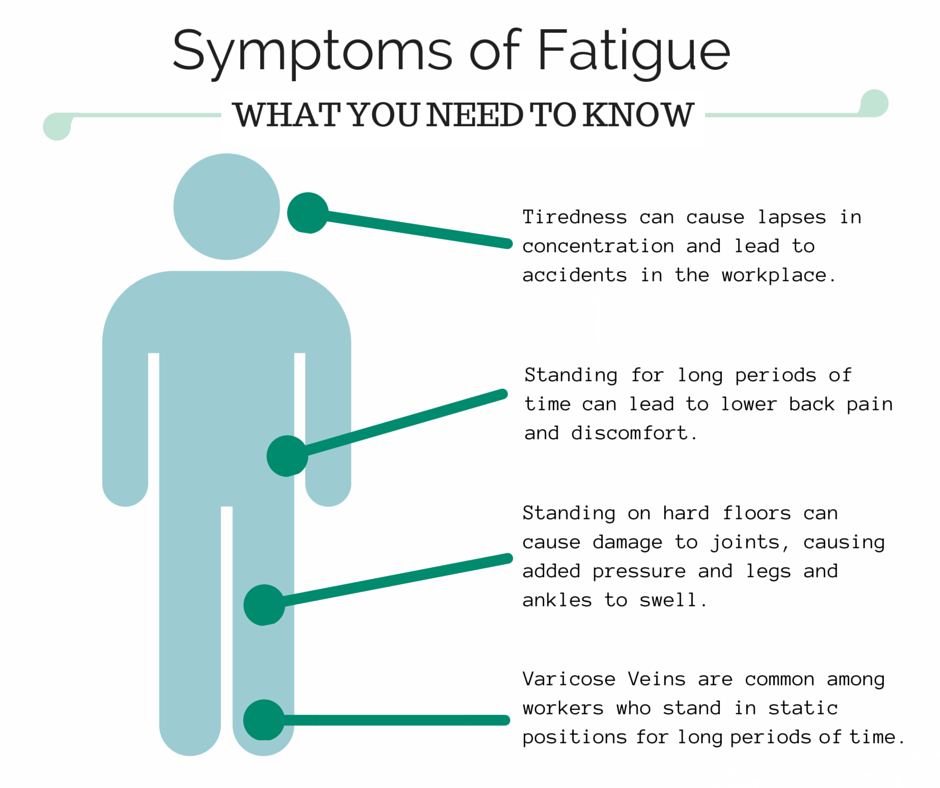In the modern world, the demands of daily life can often leave us feeling drained and fatigued. The constant juggling between work, responsibilities, and personal commitments can take a toll on our energy levels. However, the good news is that beating daily tiredness doesn’t always require drastic measures.
Tiredness/fatigue is caused due to
Tiredness, or fatigue, can be caused by a variety of factors, ranging from lifestyle choices to underlying medical conditions. Here are some common causes:
- Lack of Sleep: The most obvious cause of tiredness is not getting enough sleep. Sleep is essential for physical and mental rejuvenation, and consistently not getting the recommended 7-9 hours of sleep for adults can lead to fatigue.
- Poor Sleep Quality: Even if you’re getting enough hours of sleep if the quality of your sleep is poor due to sleep disorders (like sleep apnea or insomnia) or other disturbances, you may still feel tired.
- Stress and Anxiety: High levels of stress or chronic anxiety can lead to mental fatigue, making you feel mentally and physically drained.
- Physical Inactivity: Lack of regular physical activity can actually lead to more tiredness. Engaging in regular exercise helps improve your cardiovascular health and energy levels.
- Diet and Nutrition: Poor eating habits, including not consuming a balanced diet with adequate nutrients, can lead to fatigue. Iron deficiency (anemia) and vitamin deficiencies are common culprits.
- Dehydration: Not drinking enough water can cause dehydration, leading to reduced energy levels and feelings of fatigue.
- Medications: Some medications can have fatigue as a side effect. If you’re experiencing tiredness after starting a new medication, consult your healthcare provider.
- Sleep Disorders: Conditions like sleep apnea, insomnia/lack of sleep, restless leg syndrome, and narcolepsy can disrupt sleep patterns and lead to fatigue.
- Mental Health Issues: Conditions like depression and bipolar disorder can cause fatigue as a symptom.
- Overexertion: Pushing yourself too hard physically or mentally without proper rest and recovery can lead to fatigue.
- Shift Work and Jet Lag: Disruption of the body’s natural circadian rhythm due to shift work or frequent time zone changes can lead to fatigue.
- Alcohol and Substance Abuse: Excessive alcohol consumption and substance abuse can disrupt sleep patterns and lead to fatigue.
- Allergies: Allergic reactions can cause inflammation and disrupt sleep, leading to tiredness.
- Chronic Pain: Persistent pain conditions can interfere with sleep and contribute to fatigue.
Signs and symptoms of tiredness
Tiredness, also known as fatigue, can manifest in a variety of signs and symptoms that affect both the body and mind. Here are some common signs and symptoms of tiredness:

Physical Symptoms
- Lack of Energy: Feeling physically drained and lacking the usual level of energy.
- Difficulty Concentrating: Finding it hard to focus on tasks or conversations.
- Slow Reaction Times: Slower reflexes and reaction times than usual.
- Muscle Weakness: Feeling physically weaker than normal, which can impact daily activities.
- Headache: Frequently experiencing headaches due to tension or stress.
- Dizziness: Feeling lightheaded or dizzy, especially when standing up quickly.
- Physical Discomfort: Experiencing bodily discomfort, aches, or soreness.
- Heavy Eyelids: Struggling to keep your eyes open, even if you’ve had adequate sleep.
- Increased Sensitivity: Heightened sensitivity to light, sound, or other stimuli.
- Trembling: Shaking hands or trembling due to reduced energy reserves.
Mental and Emotional Symptoms
- Irritability: Feeling more irritable or short-tempered than usual.
- Mood Changes: Mood swings, low mood, or increased susceptibility to stress and anxiety.
- Difficulty Remembering: Struggling to recall information or experiencing memory lapses.
- Poor Decision-Making: Finding it challenging to make sound decisions or judgments.
- Brain Fog: Feeling mentally foggy, having difficulty processing thoughts clearly.
- Reduced Motivation: Having less motivation and drive to engage in activities.
- Emotional Instability: Feeling more emotionally sensitive or prone to emotional outbursts.
- Impaired Communication: Struggling to articulate thoughts and communicate effectively.
Behavioral Symptoms
- Increased Sleepiness: Feeling the need to nap frequently or experiencing drowsiness throughout the day.
- Decreased Productivity: Being less productive at work, school, or daily tasks.
- Withdrawal: Withdrawing from social interactions and activities you would normally enjoy.
- Avoidance of Physical Activities: Avoiding exercise or physical activities due to low energy levels.
- Cravings for Stimulants: Developing a heightened desire for caffeine or sugary foods for quick energy boosts.
- Changes in Eating Patterns: Experiencing changes in appetite or eating patterns, such as overeating or loss of appetite.
It’s important to recognize these signs and symptoms, as chronic tiredness can have a significant impact on your overall well-being and quality of life. If you consistently experience these symptoms despite making efforts to improve your sleep and lifestyle, consider seeking medical advice to identify any underlying causes and receive appropriate treatment.
How to overcome tiredness?
By making a few simple changes to our routines and habits, we can boost our energy and vitality. In this blog post, we’ll explore effective strategies to overcome daily tiredness and regain a sense of vibrancy in our lives.
- Prioritize Quality Sleep: The foundation of combating tiredness starts with getting adequate and restful sleep. Aim for 7-9 hours of sleep per night, and create a sleep-conducive environment by keeping your bedroom cool, dark, and comfortable. Develop a consistent sleep routine to regulate your body’s internal clock, helping you wake up feeling refreshed.
- Stay Hydrated: Dehydration can contribute to feelings of fatigue and sluggishness. Make it a habit to drink water throughout the day, and consider starting your morning with a glass of water to kickstart your hydration levels. Herbal teas and infused water can add variety to your hydration routine.
- Balanced Nutrition: What you eat has a direct impact on your energy levels. Focus on a balanced diet rich in whole foods, including fruits, vegetables, whole grains, lean proteins, and healthy fats. Avoid excessive sugary snacks and opt for complex carbohydrates that provide sustained energy.
- Regular Exercise: Physical activity is a natural energizer. Incorporate regular exercise into your routine to boost circulation, release endorphins, and improve your overall stamina. Even a brisk walk or a short workout can make a significant difference in combating tiredness.
- Breakfast Fuel: Start your day with a nutritious breakfast that includes a mix of protein, fiber, and healthy fats. This combination stabilizes blood sugar levels and provides a steady source of energy throughout the morning.
- Mindful Rest Breaks: Taking short breaks throughout the day can help prevent mental and physical fatigue. Engage in mindfulness or deep breathing exercises during these breaks to recharge your mind and body.
- Limit Caffeine Intake: While caffeine can provide a quick energy boost, excessive consumption can lead to crashes later on. Limit your caffeine intake and avoid consuming it close to bedtime to ensure quality sleep.
- Stay Organized: Clutter and disorganization can contribute to mental fatigue. Keep your physical and digital spaces organized to promote a sense of calm and focus.
- Practice Stress Management: Chronic stress can drain your energy. Engage in stress-relief techniques such as meditation, yoga, or deep breathing to manage stress levels and boost your resilience.
- Stay Social: Connecting with friends and loved ones can provide emotional support and boost your mood. Positive social interactions help alleviate feelings of tiredness and isolation.
- Stay Mindful of Portion Sizes: Overeating can lead to feelings of sluggishness. Pay attention to portion sizes and eat until you’re satisfied, not overly full.
- Expose Yourself to Natural Light: Sunlight exposure during the day helps regulate your body’s internal clock and can improve your sleep quality at night.
- Stay Active Throughout the Day: Avoid prolonged periods of sitting. Stand up, stretch, and move around regularly to prevent physical and mental fatigue.
- Practice Gratitude: Cultivating a positive mindset can boost your overall energy levels. Take a moment each day to reflect on what you’re grateful for.
- Create a Relaxing Bedtime Routine: Wind down before bed with calming activities such as reading, taking a warm bath, or practicing gentle stretching. This signals to your body that it’s time to prepare for sleep.
Beating daily tiredness doesn’t always require drastic changes. Simple adjustments to your routine, habits, and mindset can make a significant difference in boosting your energy levels and overall vitality. By prioritizing quality sleep, staying hydrated, nourishing your body with balanced nutrition, and incorporating movement and mindfulness into your day, you can overcome tiredness and embrace each day with renewed vigor and enthusiasm. Remember, the key is consistency and finding what works best for you on your journey to a more energized and vibrant life.




